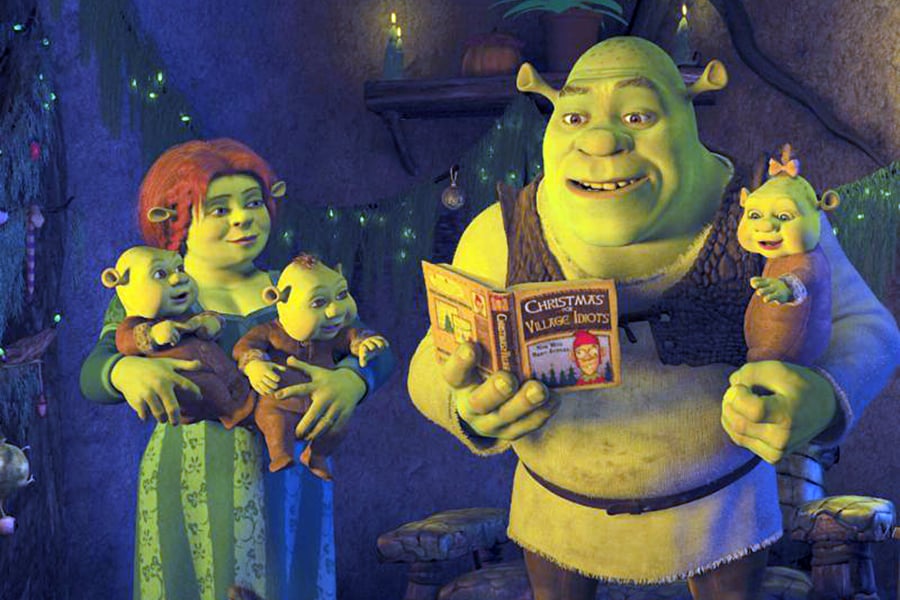With 'Shrek,' 'Gladiator,' 'The Conjuring' and 'Twister,' Hollywood is banking on old-school franchises
The business of nostalgia still seems to have a bright future ahead of it, even beyond the movie world
 The "Shrek" franchise has grossed over $4 billion worldwide, including its four movie installments and two "Puss in Boots" spin-offs.
Image: PRNewsFoto/DreamWorks Animation SKG, Inc.©
The "Shrek" franchise has grossed over $4 billion worldwide, including its four movie installments and two "Puss in Boots" spin-offs.
Image: PRNewsFoto/DreamWorks Animation SKG, Inc.©
Fans of "Shrek," "Gladiator," "The Conjuring" and "Twister" will be delighted to hear that these movie franchises—some of which began decades ago—are now back at the forefront of the cinema scene. These big-screen classics are enjoying a new lease of life, thanks to studios that are keen to capitalize on their past successes to lure new and longtime moviegoers to theaters.
"Shrek" is just one example of the many movie sequels expected to hit theaters in the coming months. After "Furiosa," the latest installment in the "Mad Max" franchise, released in May, "Alien: Romulus," in theaters August 16, or the announced fifth installment of "The Matrix," it's horror franchise "The Conjuring" that will be next to return. This fourth installment, dubbed "The Conjuring: Last Rites," should mark the end of the franchise, which launched in 2013. This final film is scheduled for release in September 2025.
The return of "Gladiator" and "Twister"
Hollywood will also try to build on other commercial successes of yesteryear. For example, "Gladiator," Ridley Scott's cult classic released in 2000, is to get a sequel. The new project will focus on the character of Lucius, the nephew of Emperor Commodus—played by Joaquin Phoenix in the first movie —and son of Lucilla.The sequel, due in theaters in November, is set years after the end of the first part, when Lucius lives in North Africa, in the kingdom of Numidia. For this latest installment, Paul Mescal will play Lucius alongside Pedro Pascal, in the role of Marcus Acarius, a Roman general. Denzel Washington and "Stranger Things" star Joseph Quinn are also on the cast.
Jan de Bont's 1996 disaster movie "Twister" is set for a sequel, too. The action film, starring Daisy Edgar-Jones and Glen Powell, opens in US theaters on July 19 and is called "Twisters."
Also read: Why Hollywood is turning its attention to video games and away from comic books
Is nostalgia the new golden goose?
So why are movie studios investing so heavily in these old-school franchises? For many years now, Hollywood has preferred to make something new out of something old, attracting audiences to theaters with sequels, remakes, reboots, prequels and spin-offs. This reassures audiences, who like to see a movie based on a well-known work (a film, a book, a video game, a comic book, etc.), as well as producers, who know that this commercial formula works, helping to avoid box-office flops.This is reflected in the success of the latest "Beverly Hills Cop" adventure released on Netflix. The film, starring Eddie Murphy as Axel Foley, scored the biggest Netflix movie premiere of the year in the week of its release. Available since July 3, the comedy posted 41 million views during the week of July 1. And it was a worldwide success, as the new movie made it into the top 10 most-watched lists in 93 countries.
The business of nostalgia still seems to have a bright future ahead of it, even beyond the movie world. Indeed, the small screen is following suit, with podcasts reviving cult shows such as "Melrose Place." Plus, the '90s show will soon be getting its own sequel.

















